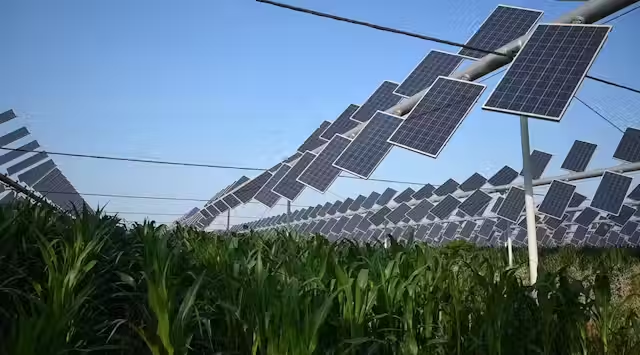
How HTSF Global is Promoting Eco-Friendly Agriculture
Table of Contents
- Introduction
- The Importance of Sustainable Agriculture
- HTSF Global’s Approach to Eco-Friendly Agriculture
- HTSFarms: Facilitating Access to Quality Inputs
- Partnerships that Drive Sustainability
- Key Sustainable Practices Promoted by HTSF Global
- Organic Fertilizers from Poultry Waste
- Capacity building for Farmers
- Conservation of Water Resources
- Impact of HTSF Global’s Initiatives on Local Communities
- Conclusion
- References
Introduction
Environmental sustainability has become a crucial consideration for the agricultural sector, especially as global pressures on food production intensify. The challenge is to feed an increasing population while maintaining ecological balance. HTSF Global has risen to this challenge in Nigeria, implementing innovative approaches that prioritize the health of ecosystems while supporting farmers in achieving productivity gains. This post will delve into how HTSF Global promotes sustainable farming practices and contributes to environmental resilience in agriculture.
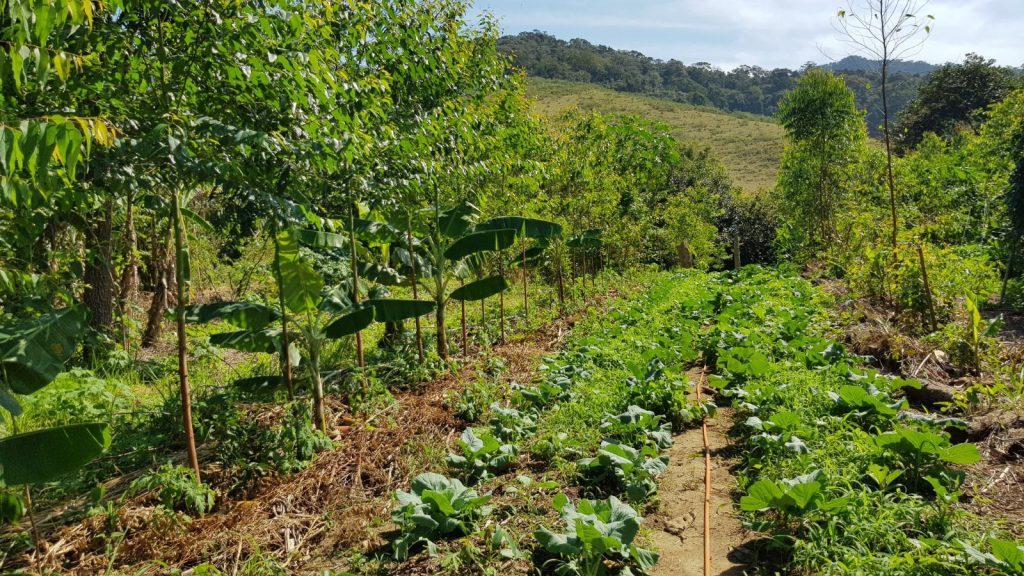
The Importance of Sustainable Agriculture
Sustainable agriculture is an approach that strives to maintain or increase productivity while ensuring the conservation of resources like water, soil, and biodiversity. It’s essential for building climate resilience, reducing greenhouse gas emissions, and minimizing the negative environmental impacts often associated with intensive farming.

Key goals of sustainable agriculture include:
- Minimizing Resource Depletion: Ensuring that farming does not deplete resources like water or degrade soil health.
- Biodiversity Preservation: Protecting ecosystems and maintaining healthy populations of flora and fauna.
- Pollution Reduction: Reducing chemical runoff and air pollution through sustainable practices.
For Nigeria, where agricultural productivity is hampered by issues like soil degradation, water scarcity, and insufficient waste management systems, sustainable practices are vital for long-term food security and community well-being.
HTSF Global’s Approach to Eco-Friendly Agriculture
HTSF Global has built its strategy around eco-friendly and efficient practices, using technology and local partnerships to support sustainability in Nigeria’s agricultural sector. Here’s a closer look at how HTSF Global is making agriculture greener and more resilient.
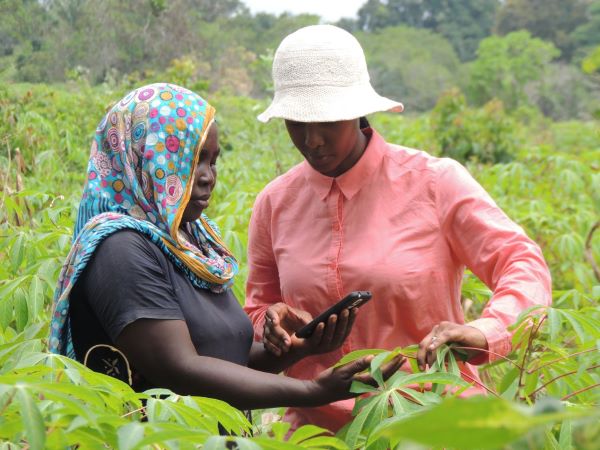
HTSFarms: Facilitating Access to Quality Inputs
HTSFarms is an e-commerce platform designed to connect farmers with high-quality inputs. By providing access to reliable fertilizers, nutrient-rich seeds, and durable equipment, HTSFarms empowers farmers to grow more sustainably.
Key aspects of HTSFarms’ eco-friendly approach include:
Organic Fertilizers: HTSFarms promotes organic fertilizers that improve soil fertility and avoid the chemical runoff associated with conventional fertilizers.
Precision Equipment: By connecting farmers with precision farming tools, HTSFarms helps reduce waste and promote efficient use of resources.
Soil Health Management: Through guidance and access to products that support soil health, farmers can prevent erosion and nutrient depletion.
Partnerships that Drive Sustainability
HTSF Global collaborates with established partners to enhance eco-friendly practices across the agricultural value chain:

- Agrited and Zartech: These partnerships provide high-quality day-old chicks and nutritious poultry feed, supporting healthy poultry growth while minimizing resource inputs.
- Jubaili Agrotec: Supplying eco-friendly agrochemicals and organic fertilizers, this partnership supports soil health and reduces reliance on synthetic inputs.
- Afri-Agric: Through planting mediums and greenhouse materials, Afri-Agric helps farmers optimize cultivation while protecting natural resources.
- Zoomlion: Providing efficient tractors and equipment, this partnership supports sustainable, low-emission farming by promoting better fuel efficiency and reducing labor demands while ensuring adequate farm tractorization.
Key Sustainable Practices Promoted by HTSF Global
Organic Fertilizers from Poultry Waste
HTSF Global’s zero-waste project focuses on repurposing poultry waste into organic fertilizers, tackling the significant issue of improper waste disposal. Poultry waste is often discarded in water bodies, leading to contamination and impacting community health. By converting this waste into organic fertilizer, HTSF Global addresses several sustainability challenges:
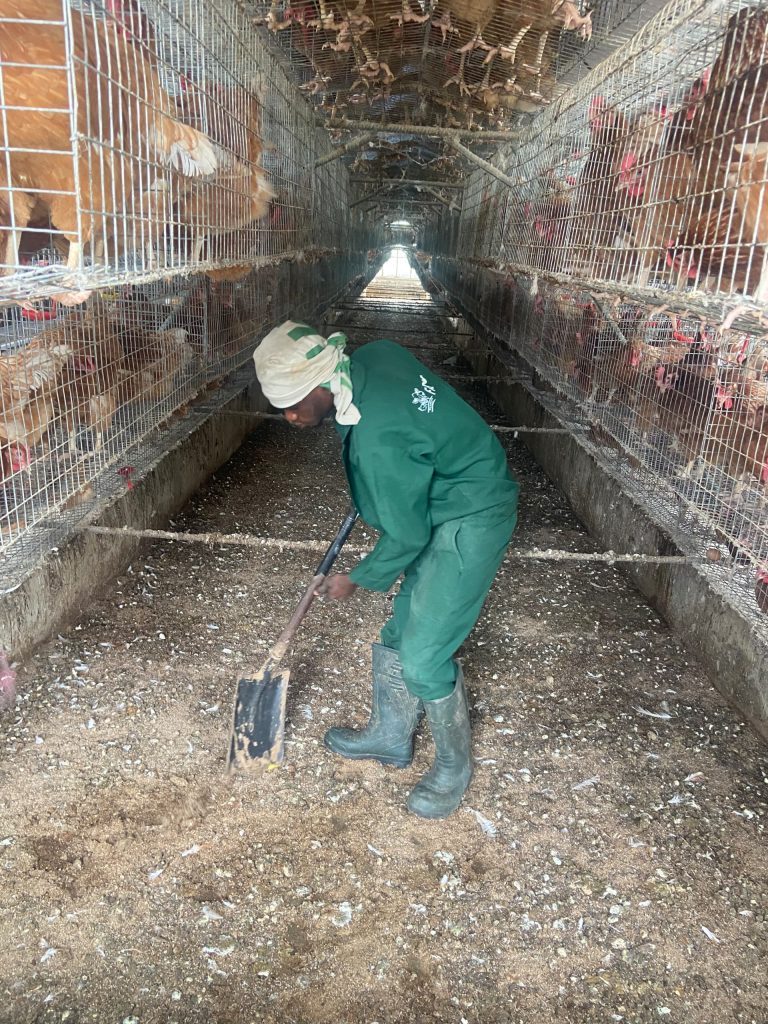
- Environmental Protection: Converting poultry waste to fertilizer prevents water contamination and reduces pollution.
- Soil Health Enhancement: Organic fertilizers are rich in nutrients that restore soil vitality, promoting better crop yields.
- Circular Economy Support: Repurposing waste contributes to a closed-loop system where resources are continually reused, minimizing waste output.
Digital Literacy and Training for Farmers
The Digital Farmer Initiative equips smallholder farmers with smartphones and essential digital literacy skills. Access to real-time weather forecasts, soil quality data, and market prices empowers farmers to adopt sustainable practices. Key aspects include:
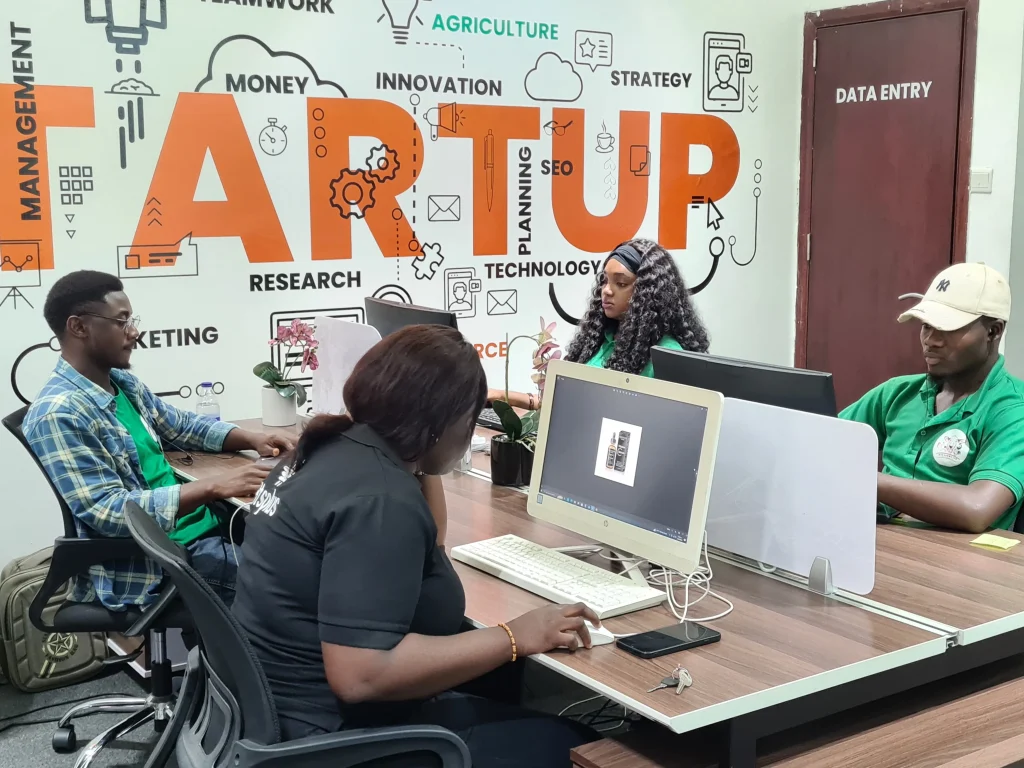
- Data-Driven Decisions: Farmers can use data to plan planting schedules, reducing the risk of crop failure due to unpredictable weather.
- Efficient Resource Use: Access to data helps farmers apply water and fertilizers optimally, reducing waste.
- Market Insights: With access to current market prices, farmers can sell at optimal times, maximizing income and reducing food waste.
Conservation of Water Resources
Water scarcity is a critical challenge for Nigerian farmers, especially in arid regions. HTSF Global’s OASIS Project aims to address water shortages by installing solar-powered boreholes and drip irrigation systems. This initiative conserves water while providing reliable access for agricultural needs. Benefits include:
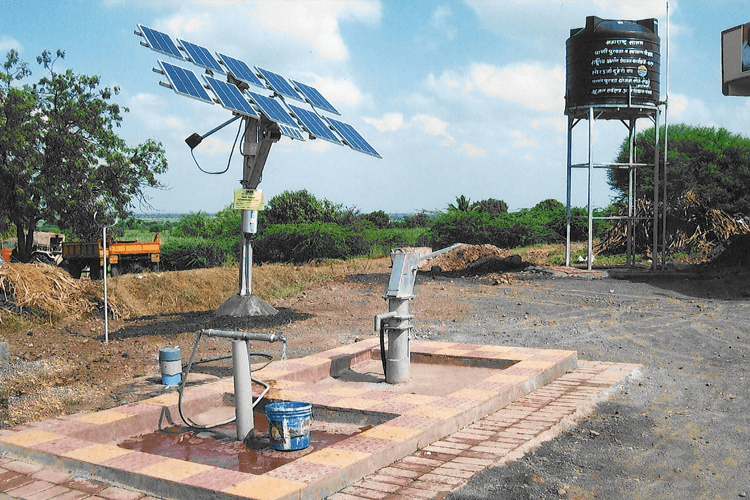
- Sustainable Irrigation: Drip irrigation uses up to 60% less water than traditional methods, helping conserve water resources.
- Renewable Energy Utilization: Solar power reduces reliance on non-renewable energy sources, lowering emissions.
- Community Access: By installing these systems in local communities, HTSF Global ensures that both farmers and residents have reliable water access.
Impact of HTSF Global’s Initiatives on Local Communities
HTSF Global has made significant contributions to Nigerian communities by focusing on soil health, income generation, and climate resilience through sustainable agriculture.
By promoting organic fertilizers, HTSF Global has revitalized soil quality, increasing crop productivity while enhancing biodiversity. Unlike chemical fertilizers, organic alternatives restore natural nutrients and encourage a balanced ecosystem, which helps reduce the need for synthetic inputs and fosters long-term soil health.

Sustainable practices like efficient irrigation and organic fertilizers reduce farming costs, enabling farmers to increase their incomes. HTSF Global’s approach allows farmers to manage resources better, cut expenses, and enjoy higher profit margins, improving their quality of life and strengthening rural economies.
Through eco-friendly farming methods, HTSF Global helps communities adapt to climate challenges, such as droughts and unpredictable weather. Practices like water-efficient irrigation and organic soil management enhance resilience, helping communities maintain food security even under adverse conditions.
Conclusion
HTSF Global is setting an example for sustainable agriculture, implementing eco-friendly practices that reduce environmental harm and enhance productivity. Through our platforms, partnerships, and community-focused projects, we’re building a greener, more resilient future for Nigerian agriculture—one that values both the environment and the people who rely on it. Together, we can drive agricultural innovation that’s both productive and sustainable.

References
- Food and Agriculture Organization (FAO). (2023). Sustainable Agriculture and Food Systems.
- Global Sustainability Institute. (2022). The Role of Organic Fertilizers in Sustainable Farming.
- HTSF Global Official Website: HTSF Global
- Sustainable Development Goals Knowledge Platform. (2024). Goal 2: End Hunger, Achieve Food Security, and Promote Sustainable Agriculture.
